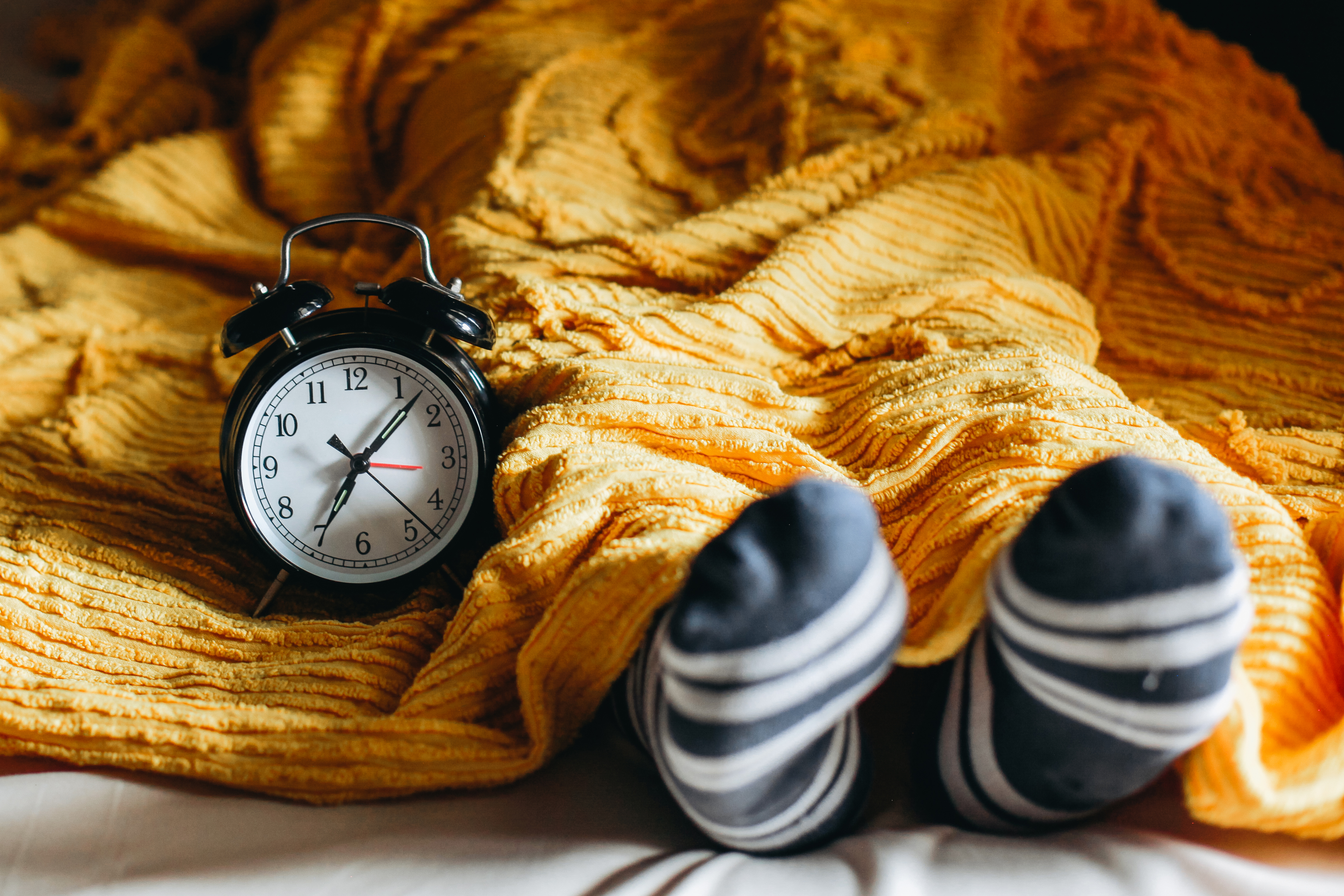Your body clock is an internal clock which helps to regulate the timing of different processes in the body, including circadian rhythms. Circadian rhythms follow a roughly 24-hour cycle and regulate things like sleep/wake cycles, body temperature, blood pressure, hormone secretion and immune function.
The main factor affecting our circadian clock is light, which is why circadian rhythms are closely aligned with day and night. However, other environmental factors also play a role.
Factors that can negatively affect your circadian rhythm include:
- Shift work, particularly overnight shifts or work shifts with varying hours
- Irregular sleep habits including having different sleep timing on work and non-work days (known as social jetlag) and/or unequal sleep duration on work days and non-work days, often to compensate for sleep deficit on work days (known as social sleep restriction)
- Lifestyle habits that mean you stay up late or wake very early
- Other poor sleep habits, including eating or drinking late at night, watching bright screens close to bedtime and not having a comfortable sleeping environment
- Travelling across different time zones
- Certain medications
- Stress and anxiety
Disruptions to your circadian rhythm can have both short-term and long-term effects on your mental and physical health, including increasing the risk of chronic health conditions such as obesity, type 2 diabetes, cardiovascular disease and cancer.
You can optimise your circadian rhythm by:
- Having a regular daily routine, including regular wake and sleep times and eating at similar times each day, both on work and non-work days
- Spending time outdoors during daylight, particularly in the morning
- Exercising regularly
- Building good sleep habits
- Having a comfortable sleep environment
- Avoiding bright light in the evenings – dim your lights or use lamps instead of overhead lights, and avoid or limit screen time before bed (including TV, computers, tablets and smartphones)
- Avoiding alcohol, caffeine and nicotine in the evenings, all of which can affect sleep quality
- Avoiding late afternoon and evening naps
For more information: Sleep Health Foundation: Body Clock
References:
Cable J, Schernhammer E, Hanlon EC, et al. Sleep and circadian rhythms: pillars of health-a Keystone Symposia report. Ann N Y Acad Sci. 2021;1506(1):18-34. doi:10.1111/nyas.14661
Fishbein AB, Knutson KL, Zee PC. Circadian disruption and human health. J Clin Invest. 2021;131(19):e148286. doi:10.1172/JCI148286


